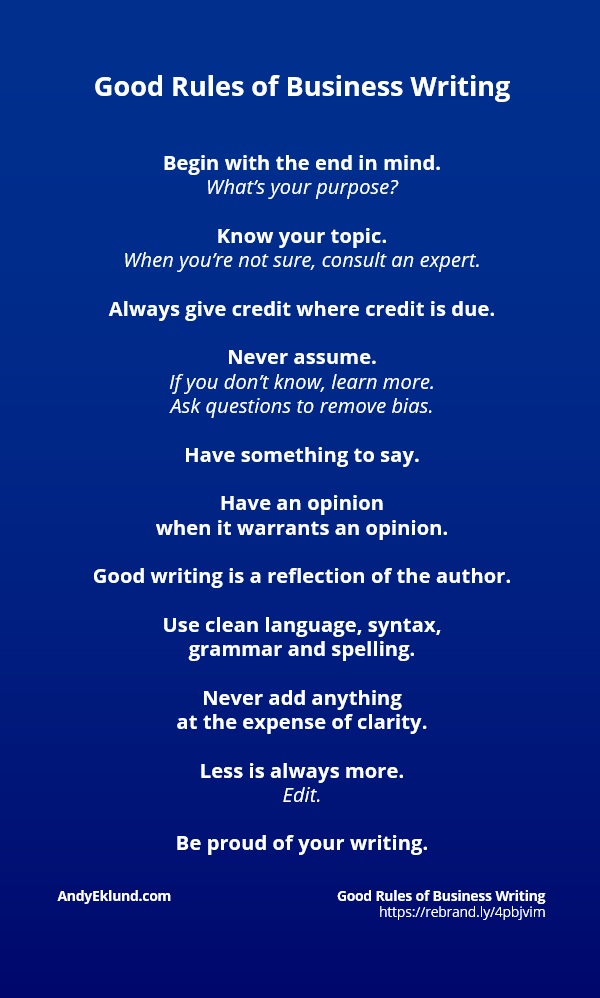Good rules of business writing stick around, no matter the topic, no matter the channel.
But are they still good, many years later, especially when there’s a new generation of people who’ve different opinions about how to communicate?
For example, as I was writing on the whiteboard in front of a workshop last week, a student asked me what ‘language’ I was using.
I was thrown for a second because I only know English, but then realised when I looked at my handwriting she’d didn’t know what cursive writing is. (Or “running writing” as it’s sometimes called here in Australia.)
And really, why should she? When I was in class, we took notes with a pencil and a pad of paper. Nowadays, nearly every student in my workshops takes their notes on a device with a keyboard attached. In a twist, the only person using a pencil and pad was a student probably (roughly) the same age as I.
At the end of the day, how we take notes and write may change, but good writing – I hope! – stays consistent.
11 Simple Good Rules of Writing in Business
- Begin with the end in mind. What’s the purpose of your business writing? What are you trying to achieve?
- Know your topic. Use respectable research. When you’re not sure, consult an expert.
- Always give credit where credit is due.
- Never assume. If you aren’t sure, read more. Learn more.
- Once you’re clear on purpose and content, have something to say.
- Have an opinion when it warrants an opinion.
- As much as your writing focuses on a specific subject, it’s still your writing. It should be a reflection of you.
- Because it’s a reflection of you, your writing should use good, clean language, syntax, grammar and spelling.
- Never add anything – background, details, humour, personal information – at the expense of clarity.
- Mies van der Rohe was right. Less is always more.
- Be proud of your writing.
Here’s a similar article – Best Tips for Good Writing – that was originally a humorous list compiled by Frank Visco entitled How To Write Good.
Any other good rules for business writing you’d add to this list?
Always, please add your thoughts and comments below.


No comment yet, add your voice below!